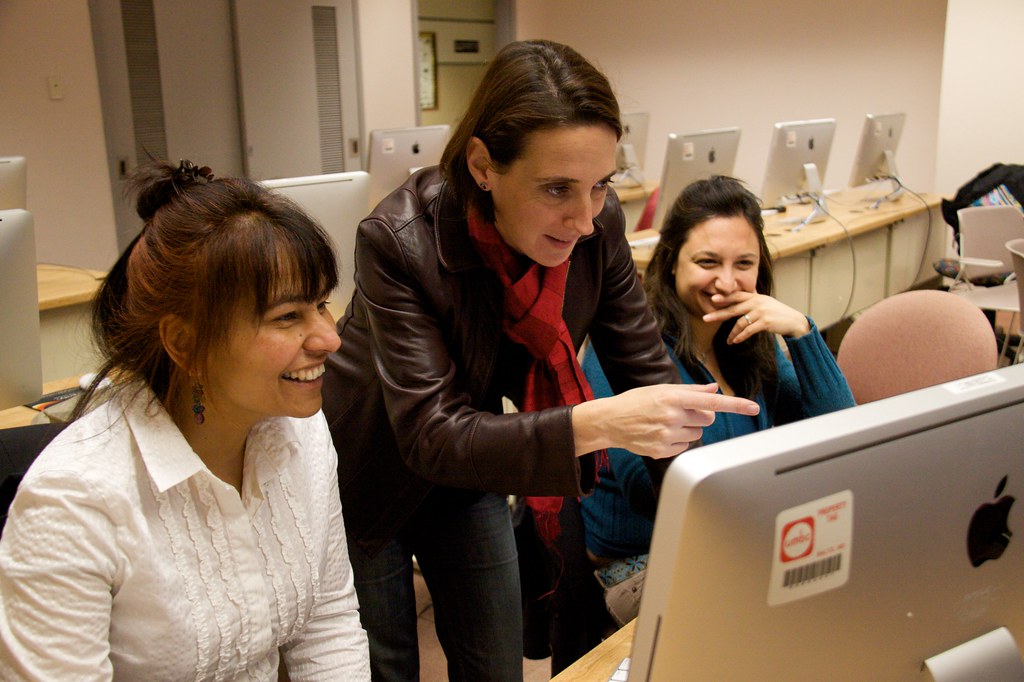Tuesday, January 21st (start in FA 424)
9:30am: Arrive, tea/coffee, mingle
10am: Welcome from Lindsey
10:05am
- Brief history of DS and then DS at UMBC (Bill- 10 minutes)
- Brief Intros to facilitators and to one another- inc. Hong Kong colleagues (Bev 10 minutes)
- Goals of Workshop and Norms and introduce progress board (Charlotte- 5 minutes)
10:30am-12pm: Story Circle #1 (See above for groups and locations)
12-1pm: Lunch, Story writing, and workshopping in small groups
1pm: Quick Zoom recorder and DML plug (Nett Smith)
Story Circle #2 (in small groups) and re-writing with audio recording when we can (Recording in Bill’s Office and 404- Joby’s group will spread out as necessary)
3:45pm (back in 424): Close for evening- homework by start of day 2 is
- Have your story recorded
- Log onto WeVideo between now and then and have up on computer (chrome)
- Pull together the images you’ll use for your video- you don’t want to spend your time tomorrow collecting those photos so bring them ready in a folder on your desktop
Wednesday, January 22nd (FA 418)
9:30am: Arrive, tea/coffee, mingle
10am: Icebreaker- in circle, how are you feeling in one word? (Charlotte)
Introduction to WeVideo (Charlotte)
10:30: WeVideo Work time with support from facilitators
1pm: Lunch and continue working
1pm: Project Work Time
2:15 Facilitators to remind group members to export a draft to share
2:30pm: Viewing of Drafts
3:30 pm Reflections:
- Any reflections on the process?
- What did you learn?
- What are you taking with you?
- How will you apply it?
- What are next steps?
- What else do you need?
If all of this sounds unfamiliar or intimidating, please do not fret- we will walk through everything together and make sure that everyone enjoys and learns in the process!
- A laptop (either Mac or PC will do) and charging cord- if you do not wish to bring your own laptop, there will be mac desktops available for you to use.
- A set of headphones
- Notebook and pen
- Come ready to listen deeply to others and to learn
- Come ready to be a little bit vulnerable and to learn things that might be brand new
- Bring a “story seed,” an idea of a story that you might want to tell. You don’t need to write it out, or even have the idea fully fleshed out. If you have photographs that go along with the story, bring those (either in digital or physical format). There are lots of resources out there for thinking about what a Digital Story might be and we will come ready to help you think through how best to tell your story. See the links at the bottom of this email for a few examples.
_______________________________________________________
The techniques of digital storytelling have become popular in classrooms as a means of self-expression and developing digital literacy skills. In addition, digital storytelling can foster relationships in communities and help to address issues of equity, inclusion, and social justice.
Are you interested in learning the skill of digital storytelling for use in your teaching, research, or work? Join us for a two-day workshop January 21-22, 10am to 4pm.
This workshop is open to UMBC faculty, staff, graduate students and Inclusion Imperative visiting faculty.
This workshop Includes:
- Introduction to the process of Digital Storytelling
- Story development in a group story circle process
- Script writing and voice recording
- Digital editing skill development and support
- Group story screening
- Tips for teaching DS in your classroom or other settings
- Lunch both days
We request that you only RSVP if you are certain that you will be able to attend.
Bring a laptop if you have one. iMacs are also available for your use in the lab.
We will email with workshop details closer to the date. If you have any questions in the meantime, please email ckenist1@umbc.edu .
This workshop is co-sponsored by the Digital Storytelling and Civic Action in Higher Education working group and the Inclusion Imperative Humanities Teaching Labs.
